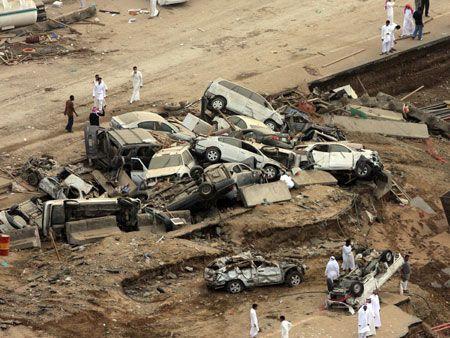A building collapse in Jeddah, Saudi Arabia, has claimed the lives of seven people and injured eight others. The Oversight and Anti-Corruption Authority (Nazaha) has launched an investigation, revealing evidence of corrupt practices in the issuance of building permits that likely contributed to the disaster.
The incident occurred on May 30th in the Al-Faisaliyah neighborhood. Authorities were quick to respond, initiating rescue efforts and securing the scene. Nazaha, acting on reports of irregularities in the permitting process, joined forces with a committee established by the Emir of Makkah Region to delve deeper.
Their investigation uncovered serious technical flaws in the building's construction. These defects, combined with the suspected corruption, point towards a preventable tragedy. Nazaha has confirmed the arrest of several individuals believed to be involved in the fraudulent issuance of permits. All those detained will face legal proceedings.
The Saudi Arabian government has vowed zero tolerance for corruption, and Nazaha's swift action reflects this commitment. The authority emphasizes its dedication to upholding the law and ensuring public safety. The building collapse serves as a stark reminder of the devastating consequences that can arise from corrupt practices within the construction industry.
Families of the victims are receiving support from local authorities, and a thorough investigation remains underway to determine the full extent of the wrongdoing. The incident has sparked public concern over building safety standards in Jeddah and across the country. Calls for stricter regulations and more rigorous inspections are likely to intensify in the wake of this tragedy.
The Saudi government has pledged to work tirelessly to prevent similar incidents from happening again. Measures aimed at strengthening oversight within the construction sector and tackling corruption are expected to be a key focus in the coming months. The collapse in Jeddah serves as a grim reminder of the importance of upholding safety standards and holding those responsible accountable.

